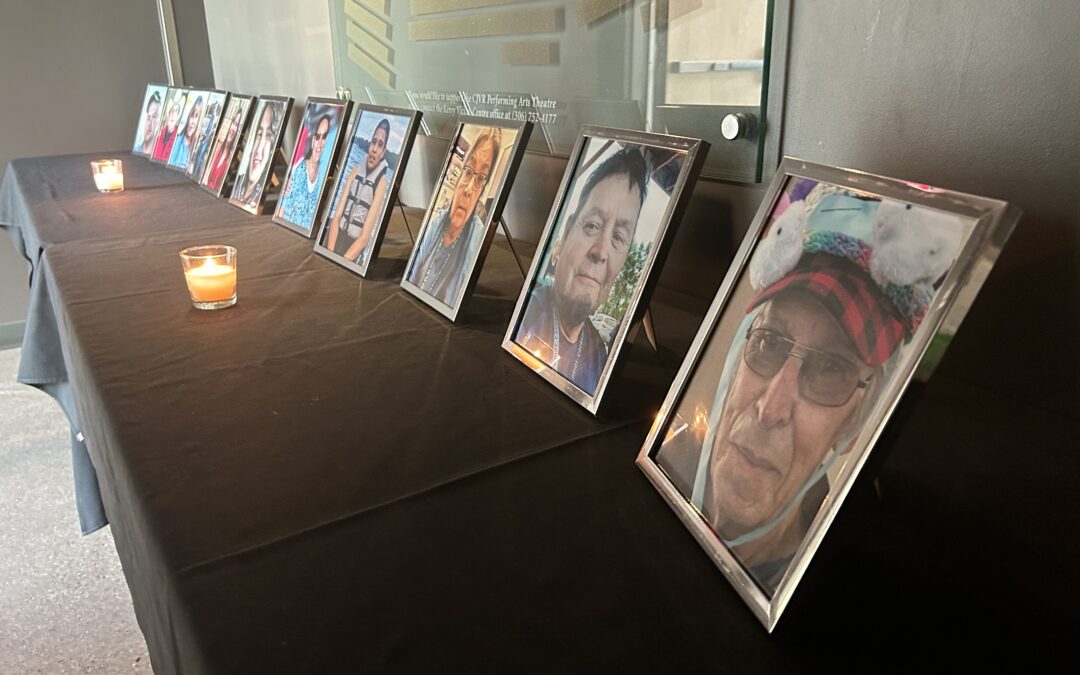The Coroner’s Inquest looking in to the mass stabbing on the James Smith Cree Nation and Village of Weldon in Sept. of 2022 has returned a large number of recommendations after hearing just over two weeks of testimony.
The Coroner’s jury returned 14 recommendations while Coroner Blaine Beaven added 15 of his own. The recommendations call on a number of groups and agencies, including James Smith Cree Nation, the RCMP, Corrections Canada (CSC) and Public Safety Canada to implement a number of policy changes.
For CSC the recommendations include hiring more Elders to provide support to inmates while they are serving their sentences. The jury is also calling on CSC to do more to ensure stability in terms of offender supervision, specifically to ensure less turnover of parole staff during an offender’s sentence. Another call is being made asking CSC to direct parole officers to be more involved in providing leads when an offender is unlawfully at large, as Myles Sanderson was at the time of the mass stabbings. In another recommendation, Coroner Blaine Beaven is asking CSC to mandate domestic violence programming for offenders.
The jury also called on the RCMP to have the date when a suspect photo was taken prominently displayed on their system. This recommendation comes as Damien Sanderson was able to avoid arrest by police the night before the stabbing as the photo police had on their system of him was an older one. Another recommendation is calling for the RCMP to have better ability to access drivers license photos to more easily identify suspects. The inquest is too making calls for the RCMP to fully staff their specialized units, including the Warrant Apprehension Team. Coroner Beaven is as well calling for the Warrant Apprehension Team to put an increased emphasis on wanted offenders with a history of domestic violence.
For James Smith Cree Nation, the nation is being called on to provide more support for their security service and to continue their work to establish their own police service. The First Nation’s leadership is also being called on to do more to promote anonymous reporting tools to their membership to help police track down people wanted by police. The inquest too called on both the First Nation and local RCMP to work together on sharing information about wanted offenders and to meet on a regular basis.
For Public Safety Canada, the Coroner’s Jury is asking for them to create a national alert system which people can subscribe to and that also has a specific alert for dangerous persons.
Families respond
Speaking to media after the jury’s recommendations were read, Chelsea Stonestand, who represented the family of Gregory and Bonnie Burns at the inquest said she was relieved when she heard the recommendations read out.
“It brought such relief, we can’t speak for everybody, but I felt blown away by all the considerations that was put in to it,” she said.
Daryl Burns, the brother of Lydia Burns said he appreciated the recommendations put forward and felt the jury was attentive and responded to what they heard. He said he also felt the inquest was carried out in a respectful way as it incorporated Indigenous ceremonies.
“It was huge that we were treated with respect throughout the whole process here,” he said.
However, Burns said he noticed that there was no mention about the impact of intergenerational trauma from the country’s residential school system, which is still impacting communities. He added this issue is crucial when it comes to understanding the current problems.
“If you look at our history and everything that happens to our native people, it all stems from the residential school,” he said.
James Smith Leadership speaks
Both James Smith Chief Wally Burns and Peter Chapman Band Chief Robert Head were present when the jury returned their recommendations Wednesday night. Chief Head said one of the recommendations he was happy to see was support for First Nations self administered policing. He explained providing more support for First Nations policing services is going to have a positive impact across Canada.
“And that’s one of the recommendations that we have started pushing with the federal government,” he said.
Chief Burns said since the mass stabbing James Smith leadership has been working hard on self administered policing. He took the time to thank a number of First Nations that have invited James Smith leadership to come to their communities to learn about self administered policing.
“We were very thankful for First Nations that invited us,” he said.
The James Smith leadership is promising to respond further to the recommendations at a media conference at the Federation of Sovereign Indigenous Nations (FSIN) office in Saskatoon Thursday afternoon.
Saskatchewan RCMP respond
RCMP Assistant Commissioner Rhonda Blackmore, who commands the force in the province, said Saskatchewan RCMP is committed to looking at the recommendations and seeing what can be done.
“I think there’s some positive recommendations,” she said.
The assistant commissioner explained they have been working to put in place some of the changes recommended by the jury. This includes working with James Smith.
“Increasing communication with the First Nation, working with their security team that they’ve established,” she said.
Blackmore said the RCMP has also been working to recruit more Indigenous people to the police service. She said depot division is set to put through training an entire Indigenous class in the near future.
When it comes to providing more resources to the RCMP’s specialized units, Blackmore explained anything involving additional funding is an area where the Government of Saskatchewan would need to be involved as that is where much of the Saskatchewan RCMP’s funding comes from.
“That’s in conjunction with the province,” she said.
